When the Illinois Community Health Workers Association(ILCHWA), Workforce Development Committee approached F&T Labs for strategic planning support, we knew this engagement would require more than traditional corporate planning approaches. As specialists in public health and government strategic planning, we understand that mission-driven organizations need methodologies that align with their unique purpose and stakeholder dynamics. This understanding, built through years of working with public health departments and community organizations, led us to develop approaches specifically designed for organizations driven by public service rather than profit. The complexity of ILCHWA’s situation – preparing for new certification requirements while maintaining their commitment to community health equity – demanded a planning process that could handle both immediate practical needs and long-term aspirational goals.
A Different Approach to Public Health Strategic Planning
Our work with ILCHWA built upon our successful engagements with other public health organizations, including Cooper County Health Center in Missouri. These experiences have consistently shown us that effective public health strategic planning requires careful attention to stakeholder engagement, systems thinking, and sustainable implementation – elements we’ve incorporated into our THRIVE methodology. While corporate strategic planning often focuses on market competition and financial metrics, public health organizations need frameworks that acknowledge their unique role in community well-being and social change. This fundamental difference shapes everything from how we facilitate discussions to how we structure implementation plans. Our approach recognizes that public health strategic planning must balance multiple stakeholder needs, navigate complex funding environments, and focus on community impact rather than just organizational growth.
Starting with Strategic Thinking
We began by helping ILCHWA understand the distinction between strategic thinking and planning through a foundational session that set the stage for deeper work. Strategic thinking, we explained, focuses on purpose and goals within a changing context – particularly crucial for community health workers facing an evolving healthcare landscape. Strategic planning adds the essential elements of improved decision-making, enhanced effectiveness, and organizational legitimacy. This distinction proved especially valuable for ILCHWA’s leadership team as they prepared to guide their organization through significant industry changes. Through carefully facilitated discussions, we established the “givens” – elements that would remain constant throughout the planning process. This early alignment created a shared understanding of boundaries and possibilities, allowing for more focused and productive strategic conversations. Identifying these constants helped participants understand where they had the flexibility to innovate and where they needed to work within established parameters.
Leveraging Virtual Tools for Inclusive Engagement
The challenge of engaging a geographically dispersed, linguistically diverse group of stakeholders led us to develop an innovative approach to virtual collaboration. Using a combination of Lucid for collaborative workshops and Microsoft Teams for bilingual engagement, we created an inclusive virtual environment that encouraged participation from community health workers across Illinois. This technology-enabled approach proved particularly valuable for an organization serving communities throughout the state, as it eliminated travel barriers and allowed for more consistent participation. Our structured approach to virtual facilitation included dedicated time for individual reflection, ensuring that every voice could contribute regardless of language preference or comfort with group discussion. We used virtual sticky notes to capture ideas, carefully designed breakout sessions for deeper discussions, and provided real-time translation support – creating an environment where everyone could participate fully in their preferred language.
Beyond SWOT: The Power of SOAR Analysis
Our decision to use SOAR (Strengths, Opportunities, Aspirations, and Results) rather than traditional SWOT analysis reflects our deep understanding of mission-driven organizations’ unique needs. While SWOT’s focus on weaknesses and threats can sometimes create a deficit-minded approach, SOAR aligns naturally with public health organizations’ asset-based, future-oriented perspectives. For ILCHWA, we specifically focused on Strengths, Aspirations, and Results, intentionally excluding Opportunities as these typically emerge from external assessment – a separate process from our internal strategic focus.
Our consensus workshop approach to SOAR analysis leveraged virtual tools to create an inclusive and dynamic planning environment. Participants used virtual sticky notes to capture their individual thoughts about organizational strengths and aspirations, allowing for honest reflection without immediate group influence. Through carefully facilitated virtual sessions, we then guided the group through a collaborative process of clustering and theming these ideas, revealing patterns and priorities that might have remained hidden in traditional group discussions. This approach proved particularly powerful in surfacing insights about ILCHWA’s unique strengths in community connection and their aspirations for advancing the community health worker profession.
The SOAR analysis directly informed ILCHWA’s mission, vision, and values development. The strengths identified helped ground their mission in real organizational capabilities, while aspirations shaped a compelling vision of community health workers as “indispensable forces in creating healthier, more equitable communities.” By focusing on results rather than threats, we helped ILCHWA develop concrete metrics for success that aligned with their public health mission.
Transforming Vision into Action
The process culminated in an intensive in-person retreat where theory transformed into practical action. Unlike traditional strategic planning retreats that often end with broad goals and good intentions, we guided ILCHWA’s team through a structured process of converting their five-year vision into immediate, actionable steps. This careful translation of long-term aspirations into near-term actions proved crucial for maintaining momentum and ensuring the plan wouldn’t gather dust on a shelf.
Working collaboratively, we helped participants break down their ambitious vision into annual objectives, then further distilled these into quarterly milestones for the first year. This cascading approach helped everyone see how small, consistent actions could build toward transformative change. For each strategic direction – from building a clear identity to preparing for certification requirements – we developed specific, measurable actions that could begin immediately. Participants left the retreat not just inspired by the five-year vision, but equipped with concrete 90-day action plans, clear ownership of initiatives, and a shared understanding of how their individual efforts would contribute to larger strategic goals.
Building Sustainable Strategic Management
True to our THRIVE methodology’s emphasis on successful exits, we focused intensively on building ILCHWA’s capacity for ongoing strategic management. This meant going beyond simply creating a plan to ensuring the organization had the tools, templates, and knowledge needed for sustainable implementation. We provided frameworks for quarterly reviews, guidance for annual planning cycles, and strategies for maintaining stakeholder engagement throughout the implementation process.
This emphasis on sustainability proved particularly valuable for a volunteer-driven organization like ILCHWA. By establishing clear quarterly milestones and specific action steps, we created accountability while ensuring the workload remained manageable for their team. The process also helped participants understand how to maintain strategic momentum through regular review and adjustment of these action plans, setting ILCHWA up for sustainable progress toward their long-term vision.
Results and Looking Forward
Today, ILCHWA has more than a document – they have a dynamic framework for advancing community health work in Illinois that reflects both ambitious vision and practical reality. Their strategic plan represents a true collaboration between stakeholders across the state, brought together through innovative virtual engagement and grounded in mission-driven strategic thinking. More importantly, they have the tools, knowledge, and confidence to adapt their strategy as the public health landscape evolves, ensuring their plan remains relevant and actionable rather than becoming another binder on a shelf.
The success of this engagement demonstrates the vital importance of using methodologies specifically designed for public health and government organizations. Through our THRIVE methodology and focus on mission-driven planning, we helped ILCHWA navigate the complex intersection of community health work, organizational development, and systemic change. The resulting plan balances ambitious vision with practical implementation, supported by clear metrics and regular review cycles that keep the organization focused on both immediate actions and long-term impact.
This approach to public health strategic planning – combining structured facilitation techniques, inclusive virtual engagement, and practical implementation planning – offers valuable lessons for other mission-driven organizations. It shows how strategic planning can be both aspirational and practical, both inclusive and focused, both systematic and adaptable. The process demonstrated that effective public health strategic planning must go beyond traditional corporate approaches to address the unique challenges and opportunities faced by organizations working for community wellbeing.
Looking ahead, ILCHWA is well-positioned to lead the evolution of community health work in Illinois. Their strategic plan provides clear direction for advancing the profession while maintaining the flexibility to respond to emerging needs and opportunities. More than just a roadmap, it serves as a living document that will continue to guide and inspire their work in creating healthier, more equitable communities across Illinois.
For organizations considering their own strategic planning journey, ILCHWA’s experience highlights the importance of choosing approaches and partners that understand the unique nature of public health and community-focused work. Whether working with large, distributed stakeholder groups or smaller, concentrated teams, success comes from combining proven methodologies with genuine commitment to inclusive participation and practical implementation.
Related: Read about our strategic planning work with Cooper County Health Center
Learn more about our THRIVE methodology

